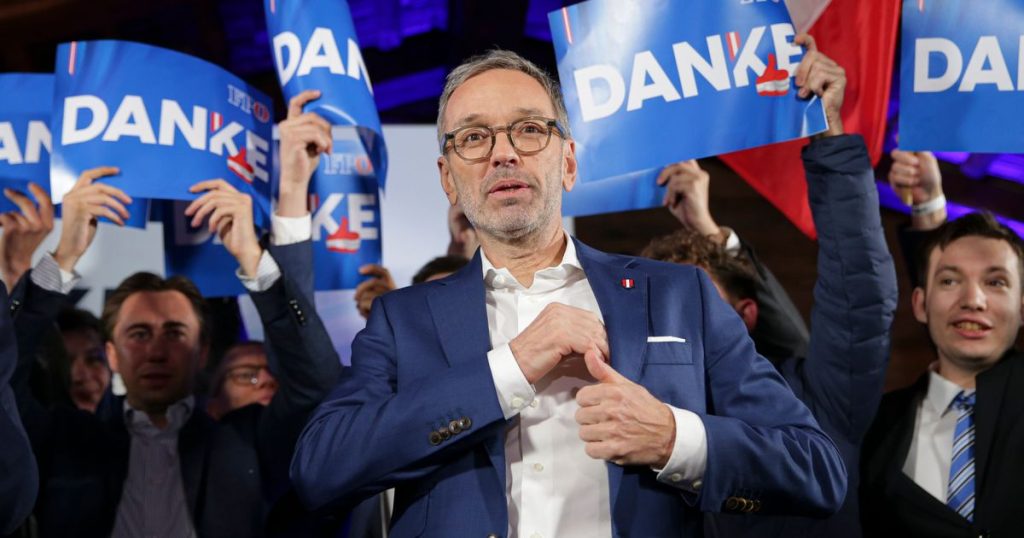In a national parliamentary election in Austria, the far-right Freedom Party was projected to win, surpassing the governing conservatives. Led by Herbert Kickl, the party capitalized on voter concerns relating to issues such as immigration, inflation, the war in Ukraine, and the COVID-19 pandemic. The Freedom Party’s election program includes calls for tighter border controls, the remigration of foreigners, and the suspension of asylum rights through emergency legislation. Kickl has expressed criticisms of the EU, advocating for some powers to be returned to Austria.
The Freedom Party’s projected win marks a significant achievement for the party, which had faced a decline in support following a scandal in 2019. The outgoing government, a coalition between the Austrian People’s Party and the Greens, lost its majority in the lower house of parliament. Chancellor Karl Nehammer, of the Austrian People’s Party, expressed disappointment at missing out on first place but reaffirmed his stance on not forming a coalition with Kickl. Kickl, on the other hand, remains determined to lead the country and enact the changes promised in the party’s platform.
The emergence of the far-right in Austria mirrors a broader trend observed across Europe, with other far-right parties in the region also making gains. Kickl’s success has not only been attributed to his party’s stance on various issues but also the failures of the current government in areas such as managing the COVID-19 pandemic and handling the flooding caused by Storm Boris. While Nehammer has presented his party as a guarantor of stability, the shifting political landscape in Austria has made it challenging to predict the formation of a new government.
The possibility of a coalition government led by the far-right Freedom Party has raised concerns among opposition parties and the public. Kickl’s controversial statements and policies have led to accusations of being a threat to democracy. Both internal and external factors have contributed to the rise of the far-right in Austria, with issues such as immigration, inflation, and the conflict in Ukraine playing a significant role in shaping voter sentiment. The election outcome has sparked protests in Vienna, with demonstrators expressing opposition to a potential government led by Kickl.
As Austria navigates the aftermath of the election, the focus remains on coalition-building and the formation of a new government. While Nehammer’s party remains a key player in potential coalition scenarios, the uncertainty surrounding the future leadership of the country lingers. The division among political parties and the differing ideologies present significant challenges in the negotiation process. The outcome of the election reflects a broader shift in Austrian politics, highlighting the growing influence of far-right ideologies in the country’s political landscape.


